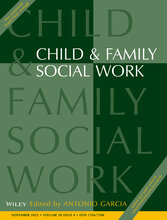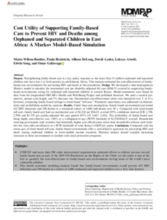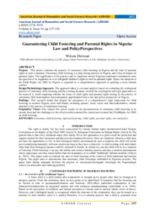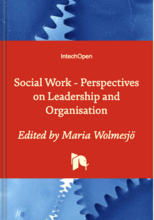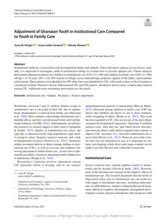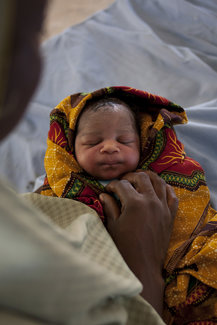

Displaying 41 - 50 of 634
The study's main themes were establishing the need for residential homes for children (RHCs), RHCs not being an ideal family environment and RHCs as respite. Family marital problems, poor financial situation, stigma attached to some children in care, abusive parents and a lack of suitable alternatives when families have a crisis were identified as key factors that impede DI implementation in Ghana.
So far in 2023, an estimated 11,600 children made the dangerous crossing. The majority were alone or separated from their parents.
The Program Manager will support a 20-year long intergenerational/longitudinal study of war affected youth in Sierra Leone (ISWAY). This study is funded by the NIMH and will advance the understanding of potential biological embedding of stress responses intergenerationally.
This analysis estimated the cost-effectiveness of family-based care environments for preventing HIV and death among orphaned and separated children in sub-Saharan Africa.
Mauritius has achieved full prohibition of corporal punishment of children with the enactment of the Children’s Act 2020. The new law came into force in January 2022. With this law reform, Mauritius is the 65th state worldwide, and the twelfth African state to realise children’s rights to protection from all violent punishment.
This article examines the practice of customary child fostering in Nigeria and the state of parental rights in such a situation. The significance of the practice and its impact in mostly Nigerian traditional communities raises the question of its regulation in order to safeguard children's rights as well as parental rights.
While several interventions have been put in place to address the needs of persons with disabilities in developed countries, their counterparts in low-income countries, such as Ghana, continue to face marginalisation and exclusion. Using user-perspective and co-production approaches, this report analyses existing services for Ghanaians with disabilities and the relevance and usefulness of these services.
The Child Protection Technical Expert (TE) has a central role in the country office given our focus on quality programming. The Child Protection (TE) will use their in-depth understanding of the context, technical expertise and skills to define and achieve our strategic ambition for child protection in Senegal, particularly in strengthening child protection systems. at national and local level, the protection of girls and boys from all forms of GBV, the protection of children on the move as well as the protection of girls and boys in and around schools.
The International Labour Organisation (ILO) has directed Ghana to double its efforts in ending the worst forms of child labour, particularly in the cocoa and fishing sectors.
Institutional childcare is associated with developmental delays and setbacks. Since alternative options are not always available, it is important to investigate youth in institutional settings to evaluate how to provide optimal care.

